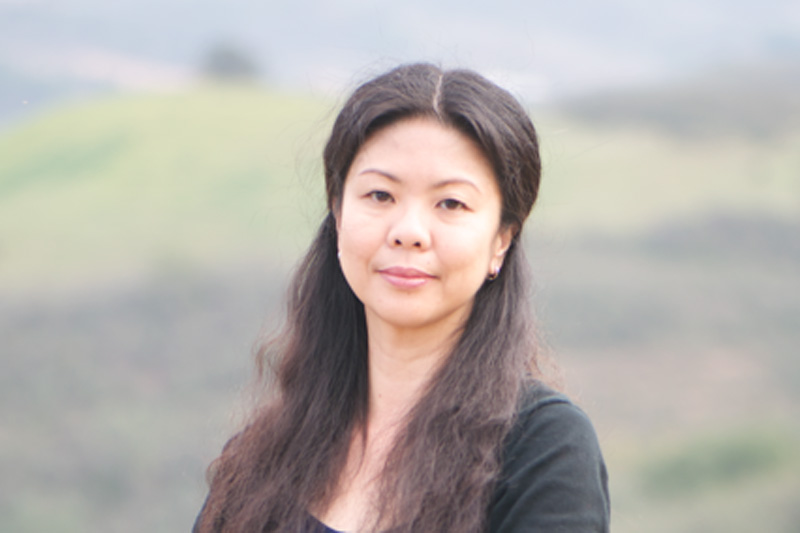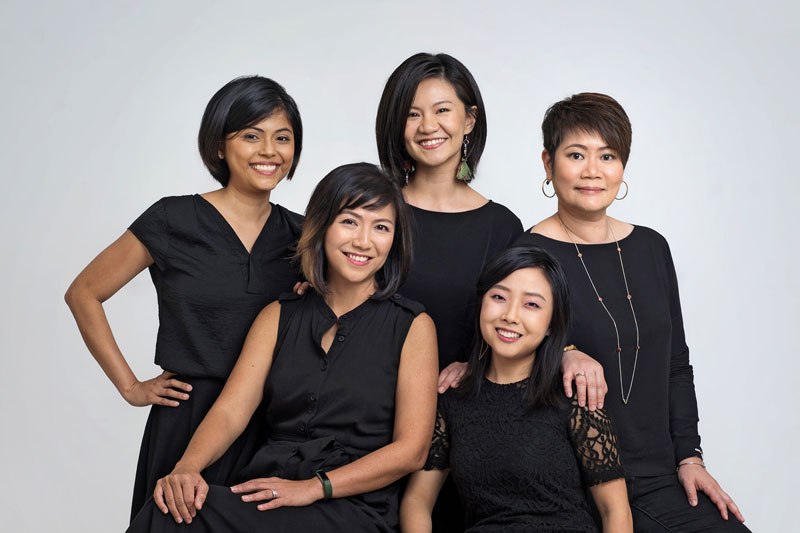
I have been teaching Drama classes at the Down Syndrome Association (Singapore) for almost twenty years now, together with my collaborator, Julius Foo. Some of the students have been with us from day one. One of our brightest students has finished school and is now working as a toilet cleaner. When asked to talk about his work, he skims over the cleaning part. Instead, he talks lengthily and re-enacts with great imagination all the other aspects of his working life – the bus rides, the lunch hour. Perhaps in the art-making, he finds joy, affirmation and dignity. Perhaps toilet cleaning is not what he wants to do. Yet, he is one of the few lucky ones, to get work at all.
Another one of our students says she has been a bridesmaid many many times, she is tired of it and wants to be the bride. One time, she wrote a love letter to a friend in school and her parents were promptly called in to see a very concerned Principal.
Another stopped coming to our classes when her mother, who was her main caregiver, passed away. No one else in the family could or would send her to classes. Some years later, I ran into her. She was half bald as she had been locking herself in her room and pulling out her own hair. When formal schooling ends at age 18, when they have not been empowered with independence, what happens to them?
Another stopped coming to our classes when her mother, who was her main caregiver, passed away. No one else in the family could or would send her to classes. Some years later, I ran into her. She was half bald as she had been locking herself in her room and pulling out her own hair. When formal schooling ends at age 18, when they have not been empowered with independence, what happens to them?
Another student got a job at one of the biggest fast food chains. He proudly showed us a photo of himself in work uniform, standing tall and grinning. Some months later, we discovered he had been badly bullied by colleagues, became mentally distressed and had to seek medical help.
Of course, life is not all bleak and gloomy. We had stayed and worked there for close to two decades because there is always joy. I tell these stories to share some of the problems and challenges faced by persons with disabilities. Since embarking on the research process for our festival, more issues and complexities have been excavated. We met different disabled communities with diverse sensitivities, concerns and perspectives.
Why make a festival about Disability? Who is it for and why? Should able-bodied people lead such a festival? How should persons with disabilities be represented and portrayed? Should the works be fully accessible to all communities with disabilities? What stories do we choose to tell? How do we bridge and connect persons with and without disabilties?
To the young people journeying with us in this year’s festival, the questioning has begun.
Jean Ng
November 2019
So much has happened in our world since I wrote this message in November 2019. Our questioning, thinking and creating intensified as the pandemic struck and a circuit-breaker imposed. The creative teams, instead of sinking into despair and lethargy, devoted more time, focus and (re)imagination into the work than they normally would or could. Despite the challenges moving rehearsals and the shows online, spirit has been determined, adventurous, playful and hopeful. We look forward to sharing the works with you. Let’s get together.

It is with mixed feelings that we present the final edition of this annual youth theatre festival, since 2015. This year has turned out to be very challenging with Covid-19, and whilst it also presents new opportunities to re-imagine theatre-making and engagement with audiences for a digital world, it is also a vastly different world from being able to come together and create, and connect with other bodies in a physical space. That direct exchange of energy and the senses is sorely missed; the absence of the buzz, chatter and smell of teen spirit in the audience will feel strange.
We recognise the privilege of being able to hold this space for young people to create art on important social issues of the day, to have their voices heard, and are grateful for all the artists and educators who have come alongside to mentor them, from research, to devising, rehearsals, productions and public dialogue. This process has been so precious and the space sacred because difficult questions and conversations could be had that are usually difficult to raise in schools. Young people also got to meet and connect with a diversity of persons they otherwise wouldn’t have and therefore grew their capacity for empathy while also tasting complexity, understanding structural injustices, as well as sitting with the discomfort of personal complicity. All of which is crucial to their development as theatre-makers but also as persons.
We hope more of these spaces for deep listening and questioning, for experimentation, collaboration, devising, creating and engaging can be created for young people, with sufficient time devoted to process. It is an investment of resources that will be well worth it, having witnessed the impact of the festival on participants over the years. This is something ArtsWok feels strongly about, and will continue to invest in, as our future requires tremendous amounts of creativity, imagination, tenacity, empathy, collaboration and adaptability.
This leaves us to thank our two inspiring, generous Artistic Directors, Alvin Tan from The Necessary Stage who encouraged, and helped us get this festival happening, and our current Artistic Director, Jean Ng who has brought the festival to new heights and depths. Thank you too to M1 for supporting the development of this festival, as well as to Esplanade – Theatres on the Bay for your partnership and friendship.
We will meet again!
In solidarity,
The ArtsWok team